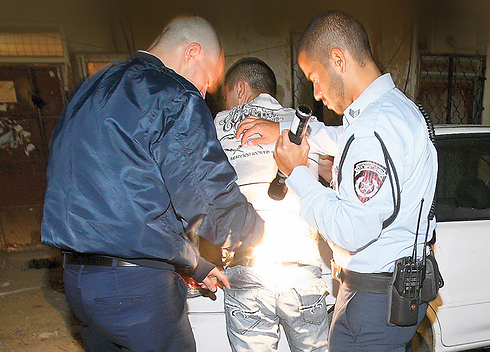A Knesset plenum approved on Monday night the "stop-and-frisk law" proposed by Public Security Minister Gilad Erdan, which expands law enforcement's authority to conduct searches. The law permits police officers to search someone's body and belongings if there is a reasonable suspicion that he may be about to commit violence, or in the event that he uses threatening or violent language.
The bill permits police to search anyone in a group believed to be suspicious. Police will only be able to conduct weapons searches in certain places in accordance with the law, or in the event that there reasonable suspicion of someone carrying a weapon.
Furthermore, the law will allow the chief of a police district to designate a location in which there is suspicion of terrorist activity as a location where body searches are permitted in order to locate illegal weapons. This declaration would remain in effect temporarily and would be the result of heightened security.
The bill is essentially a softened version of the original, which was formulated by the Public Security Ministry and encountered widespread public opposition, including by the Association for Civil Rights in Israel.
Attorney Avner Pinchuck, director of the association's Civil and Political Rights Unit, said the bill originally allowed body searches without probable cause, "but the approved version threatens citizens no less." Pinchuk argued that Ethiopian Israelis, Arabs, and darker-skinned Jews will remain vulnerable to harassment without any oversight. Indeed, the bill has raised fears of discrimination among Ethiopian Israelis and Arabs.
Minister Erdan, for his part, said passage of the law constitutes "an important boost to the police's ability to more effectively fight terrorism and violence."

















